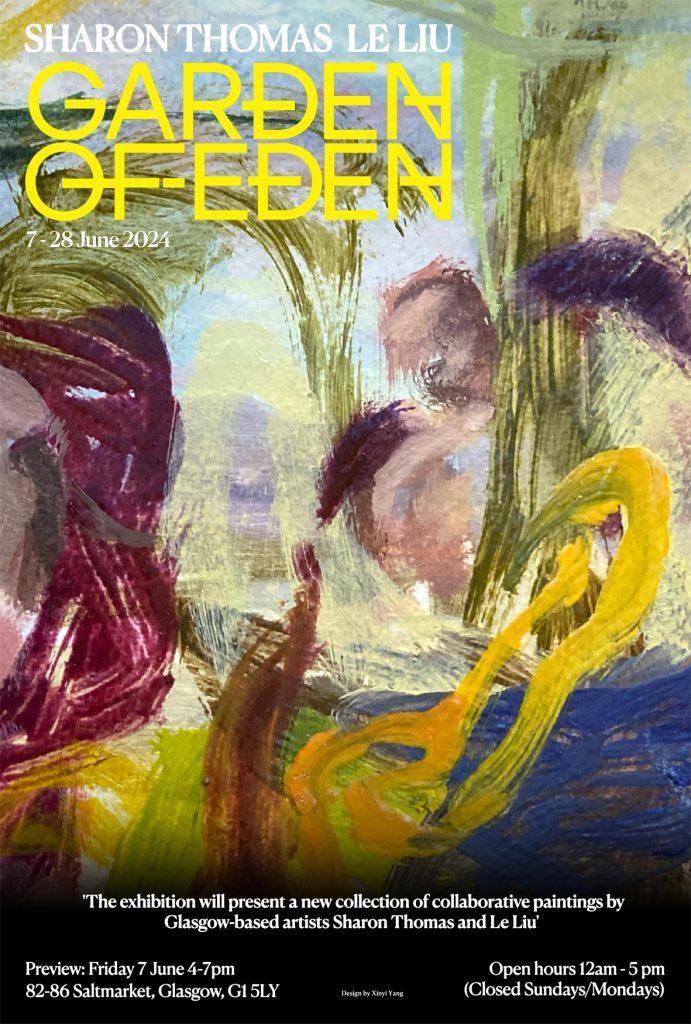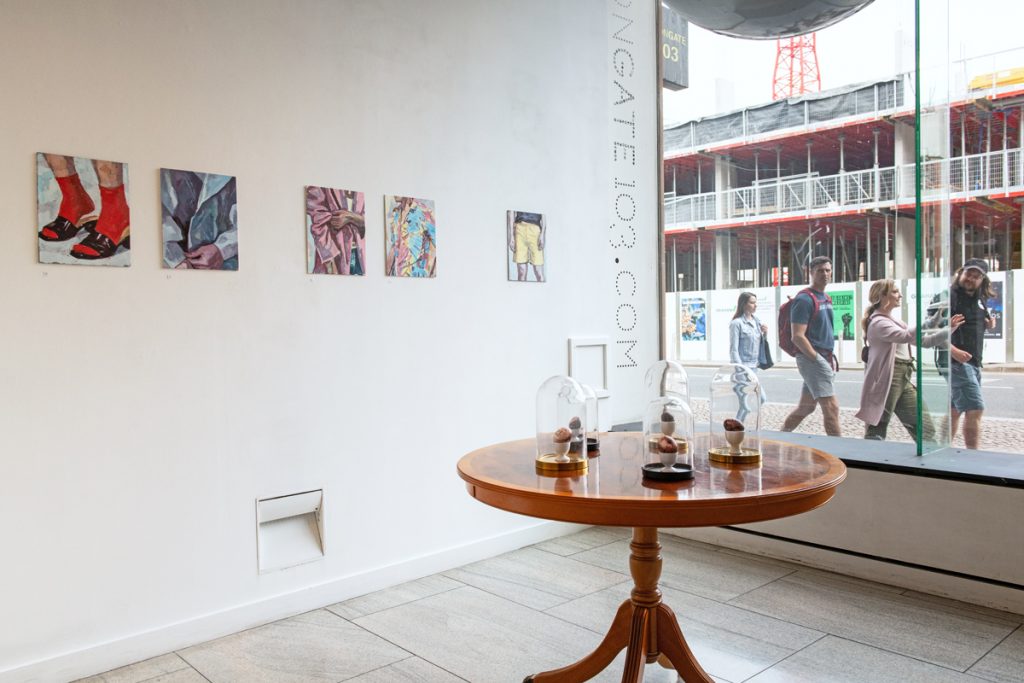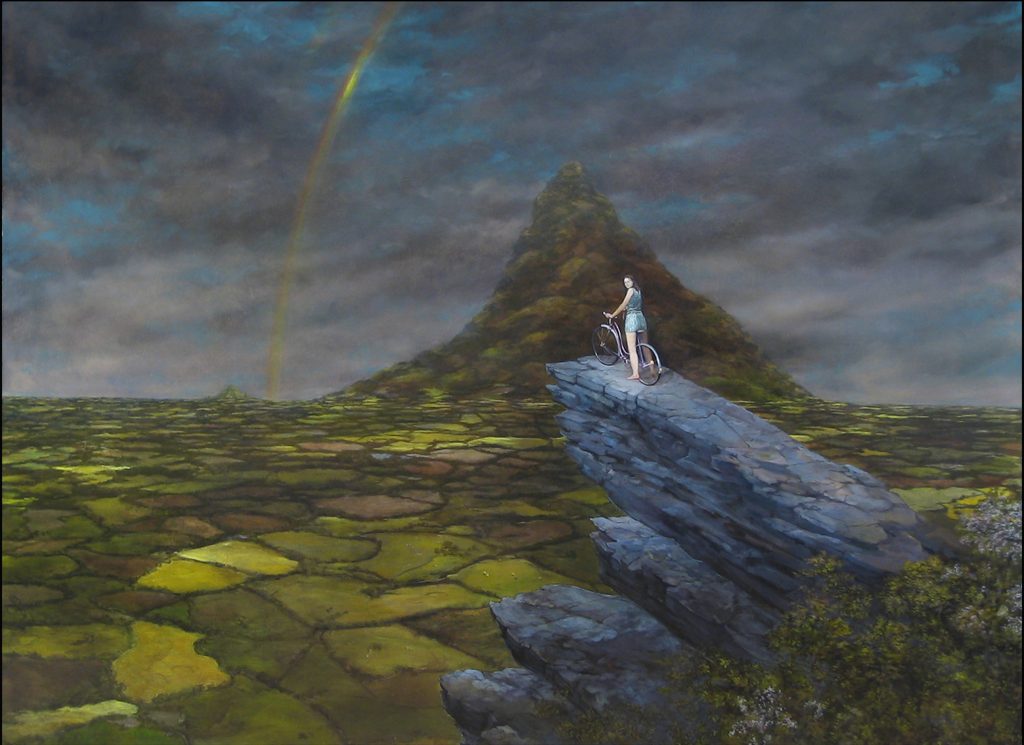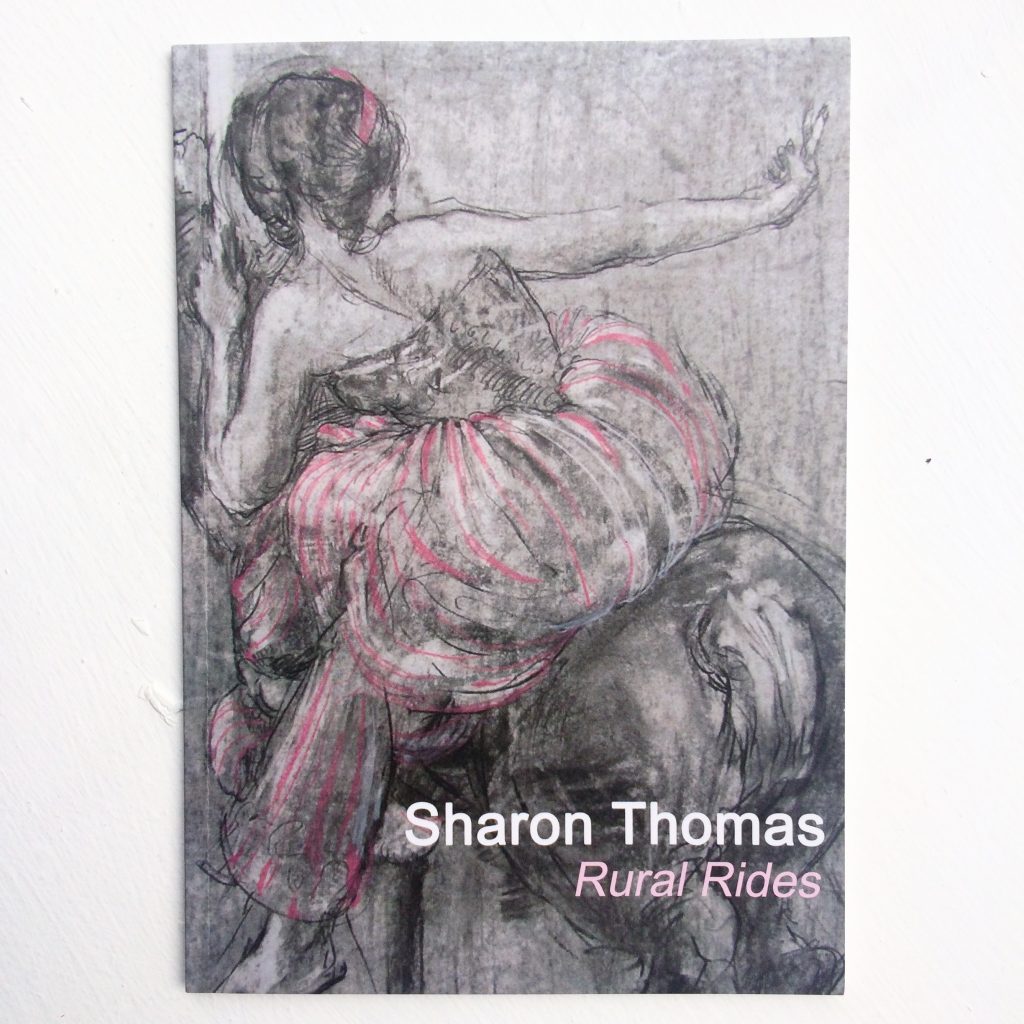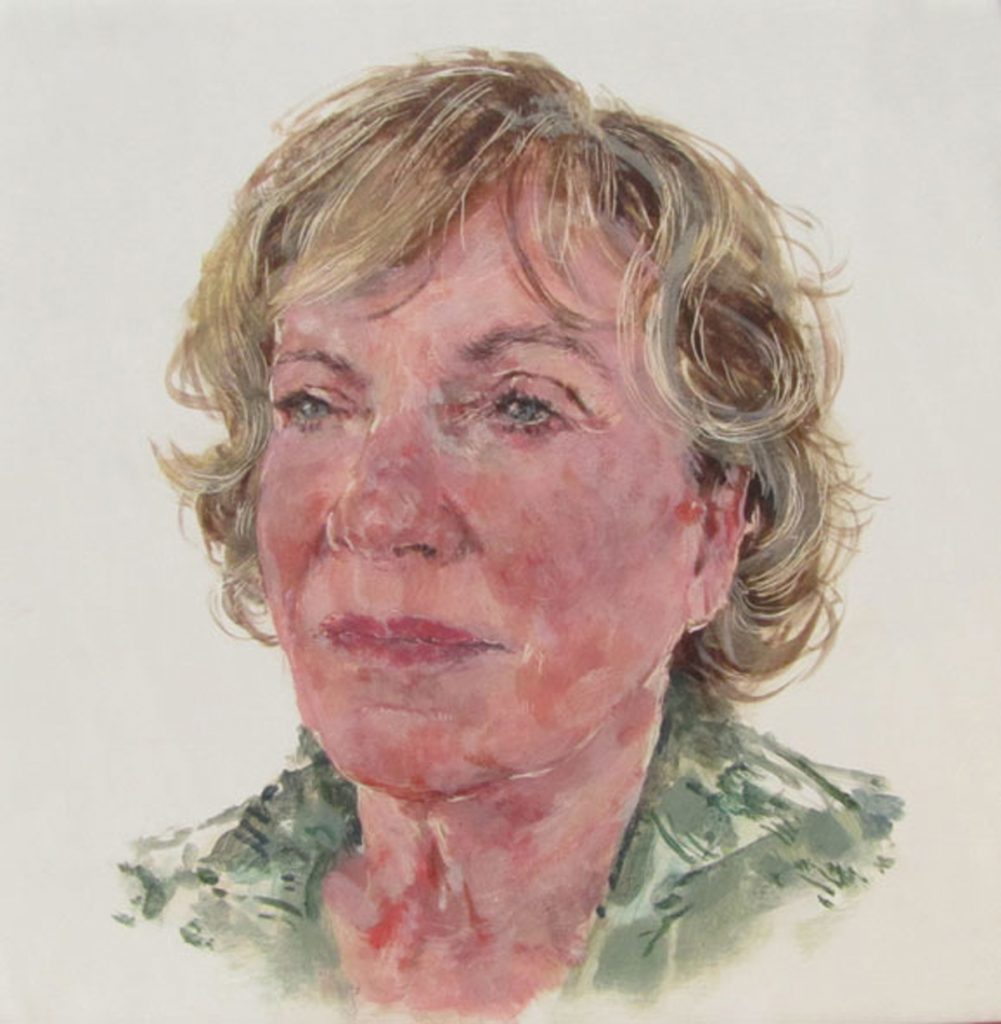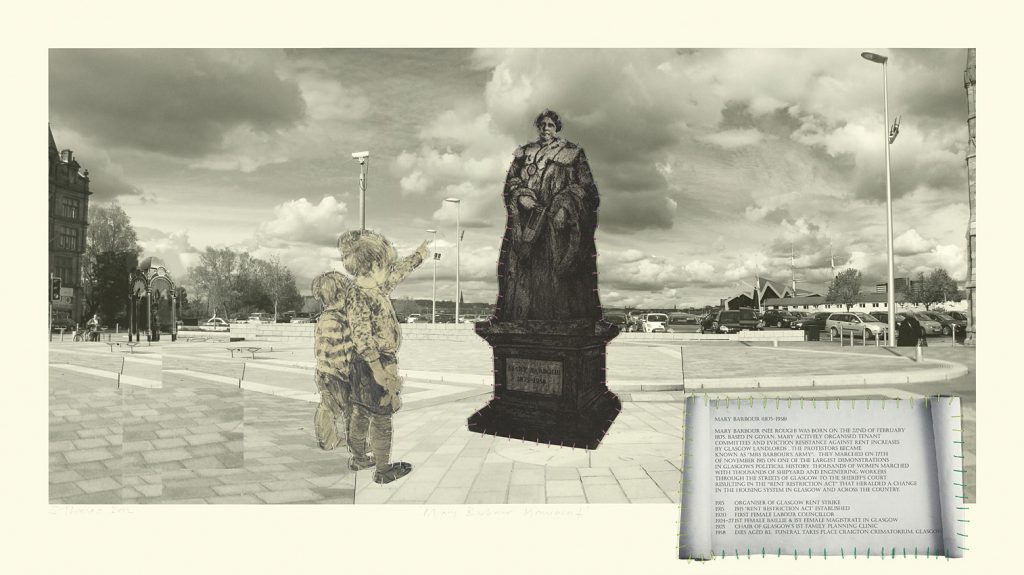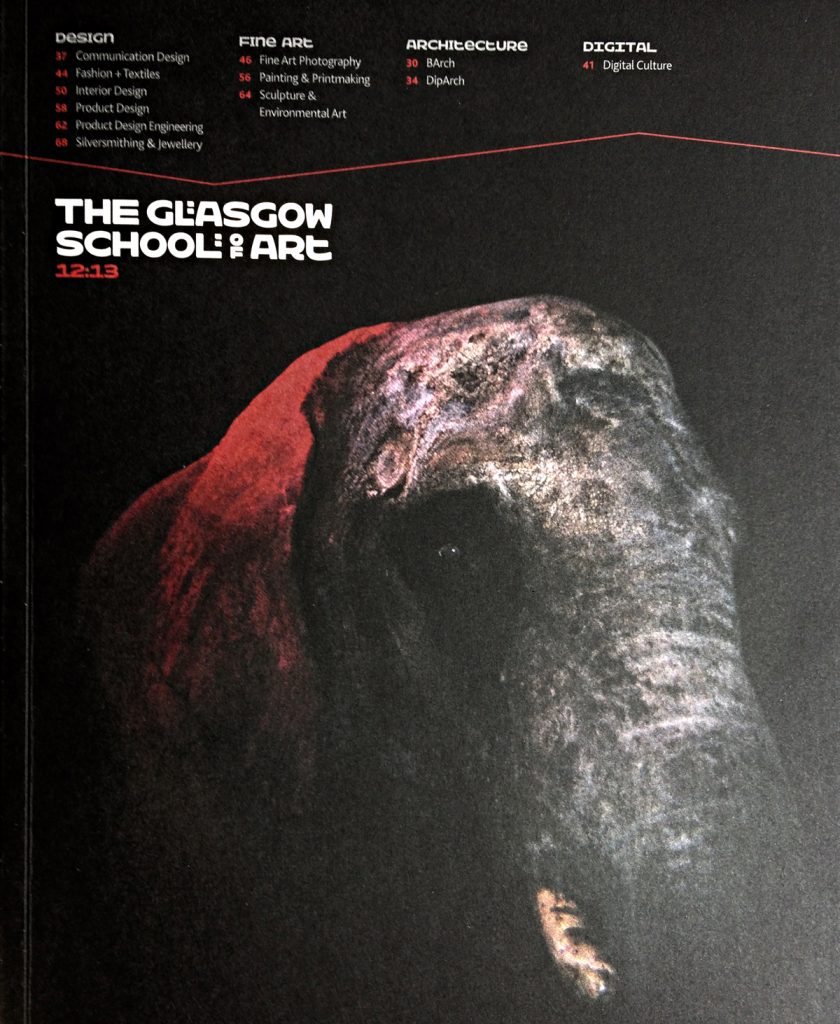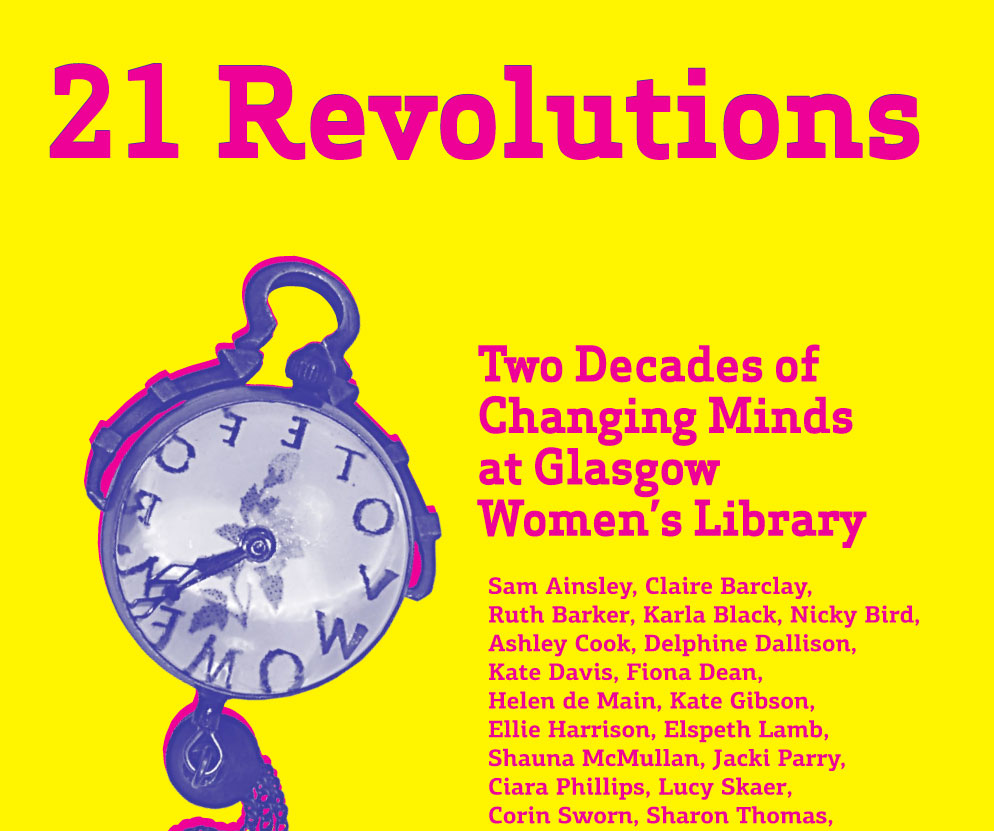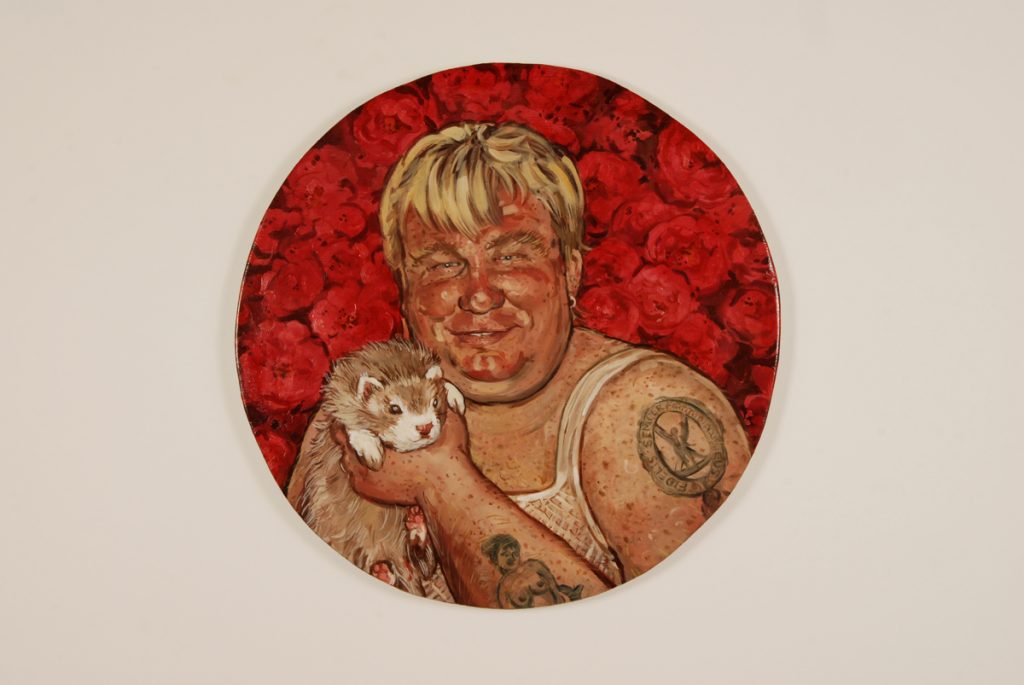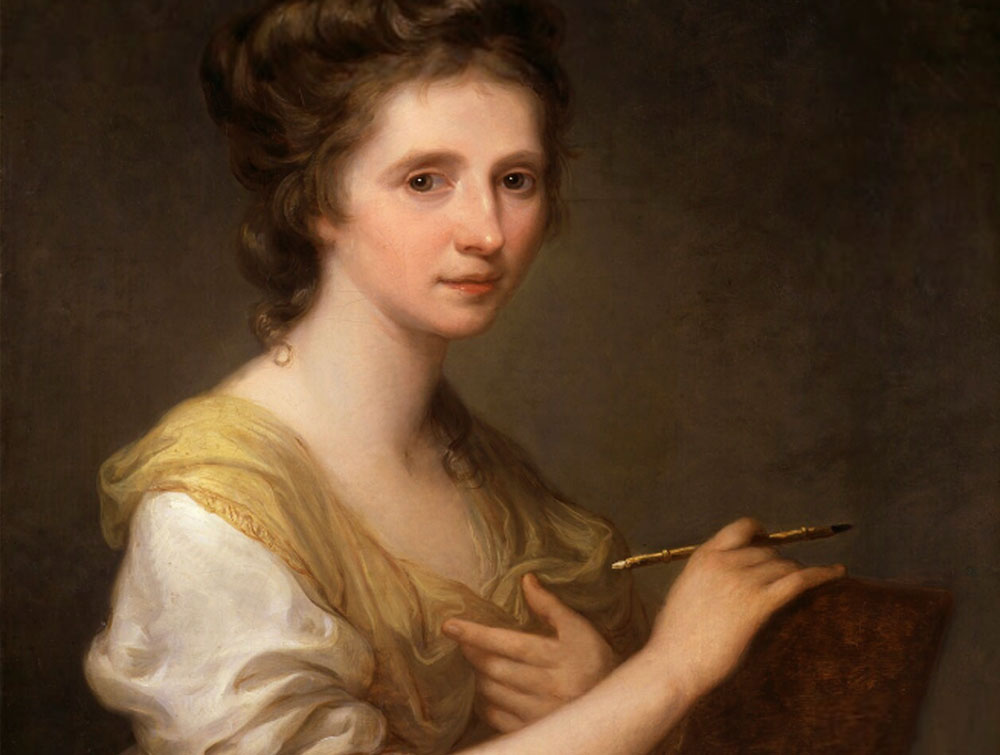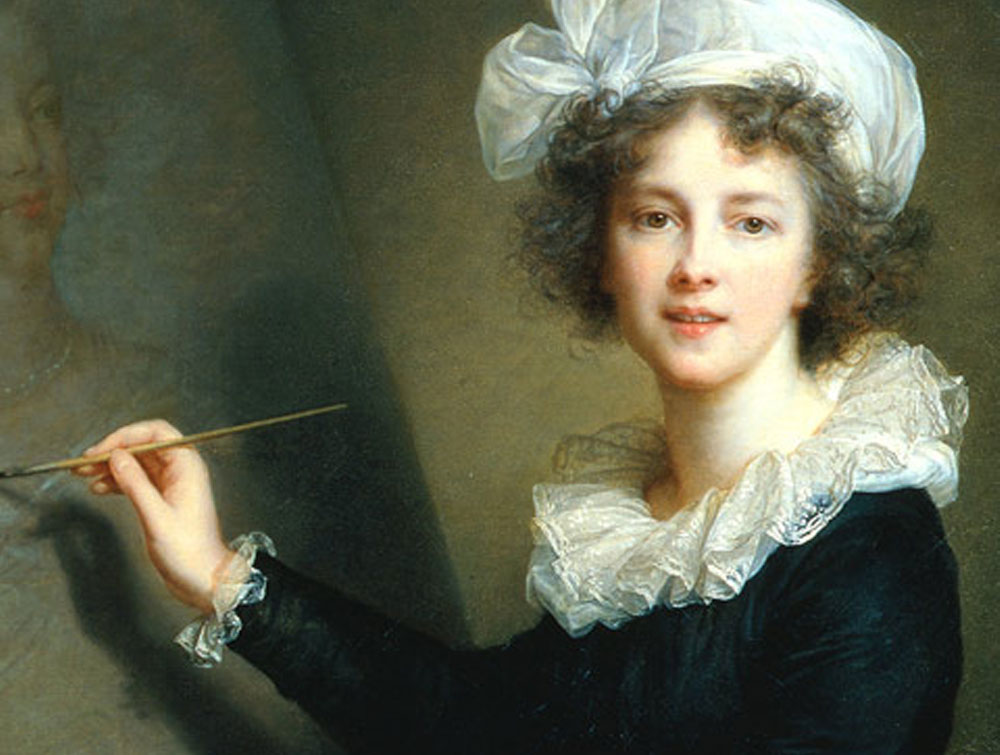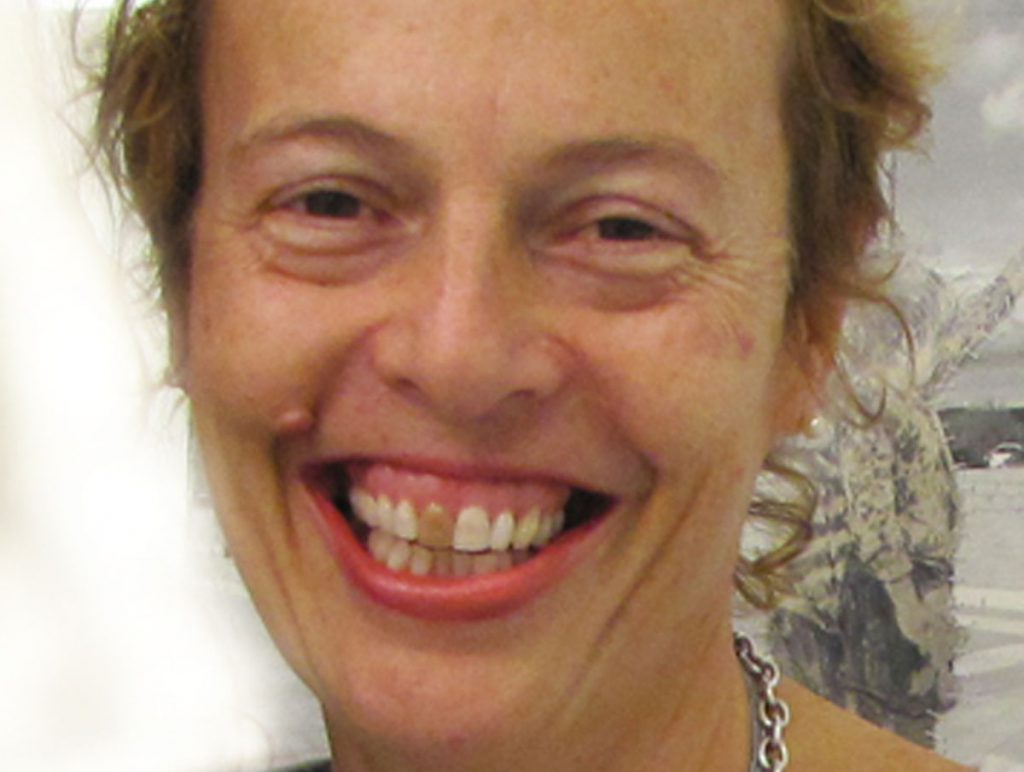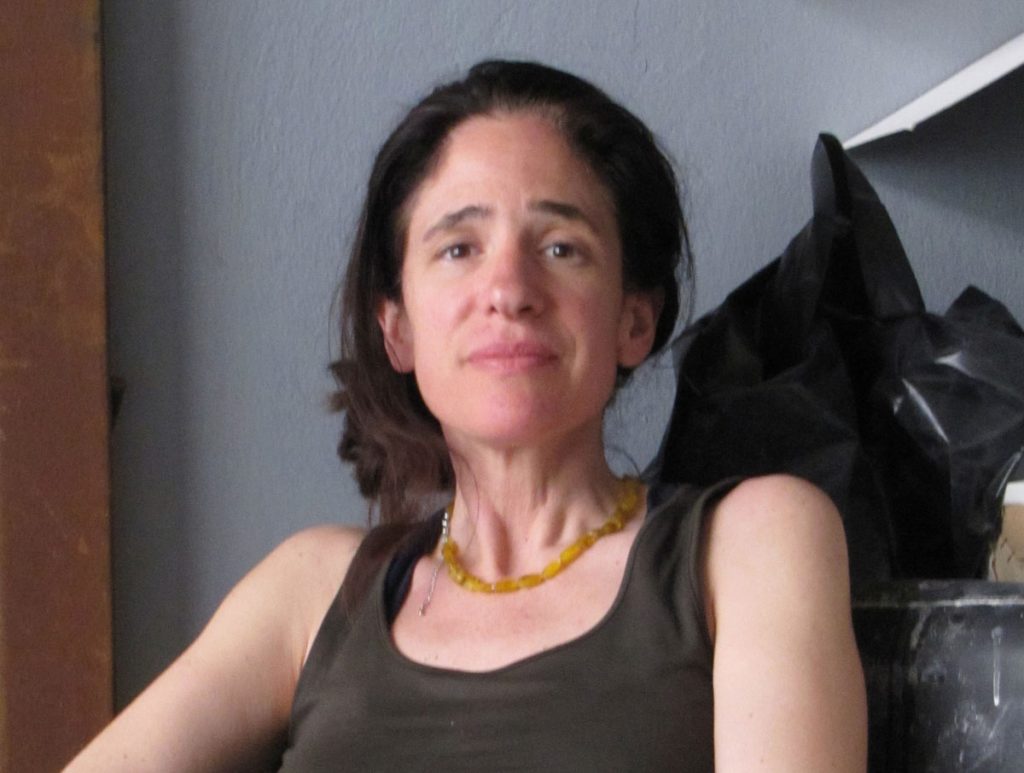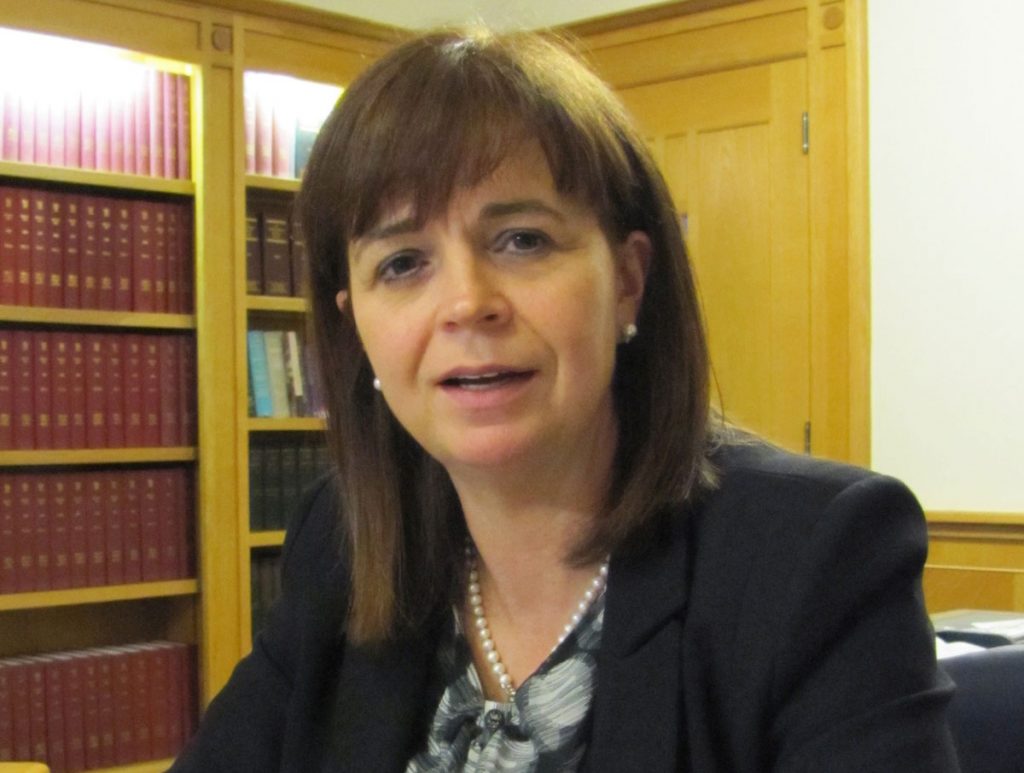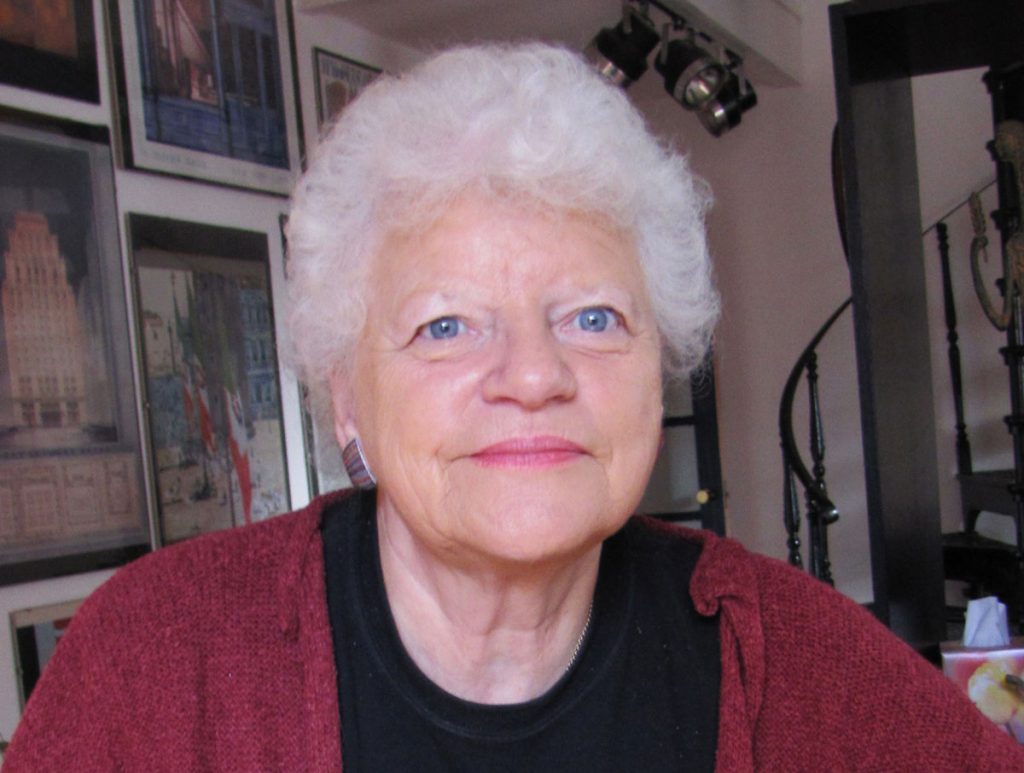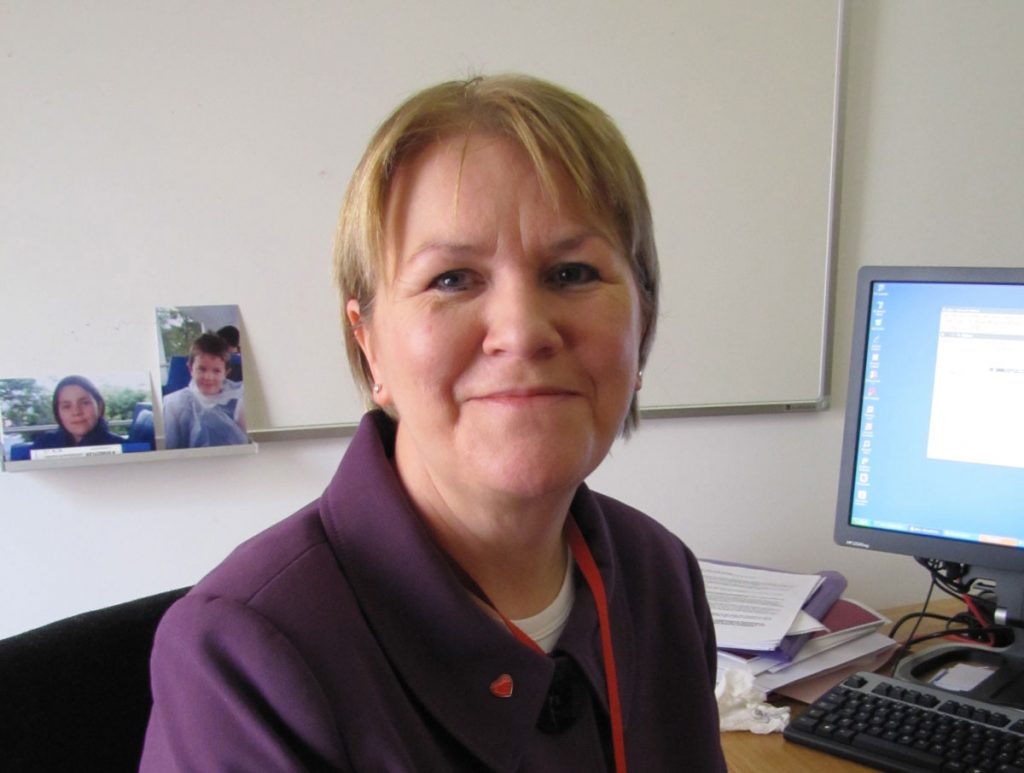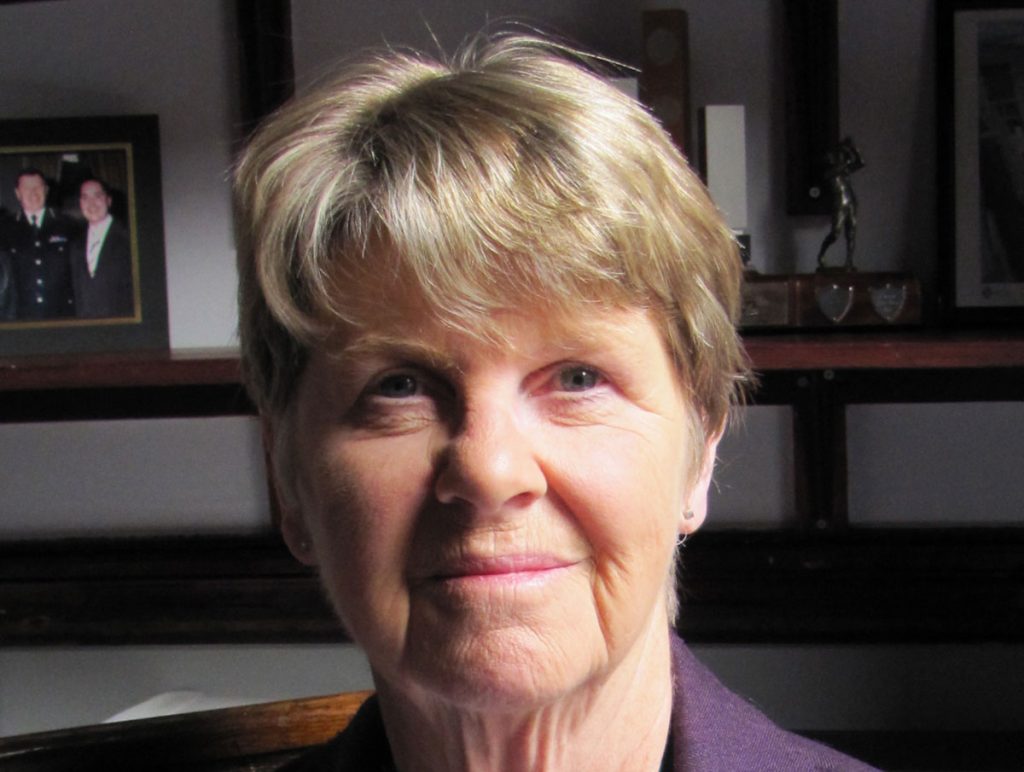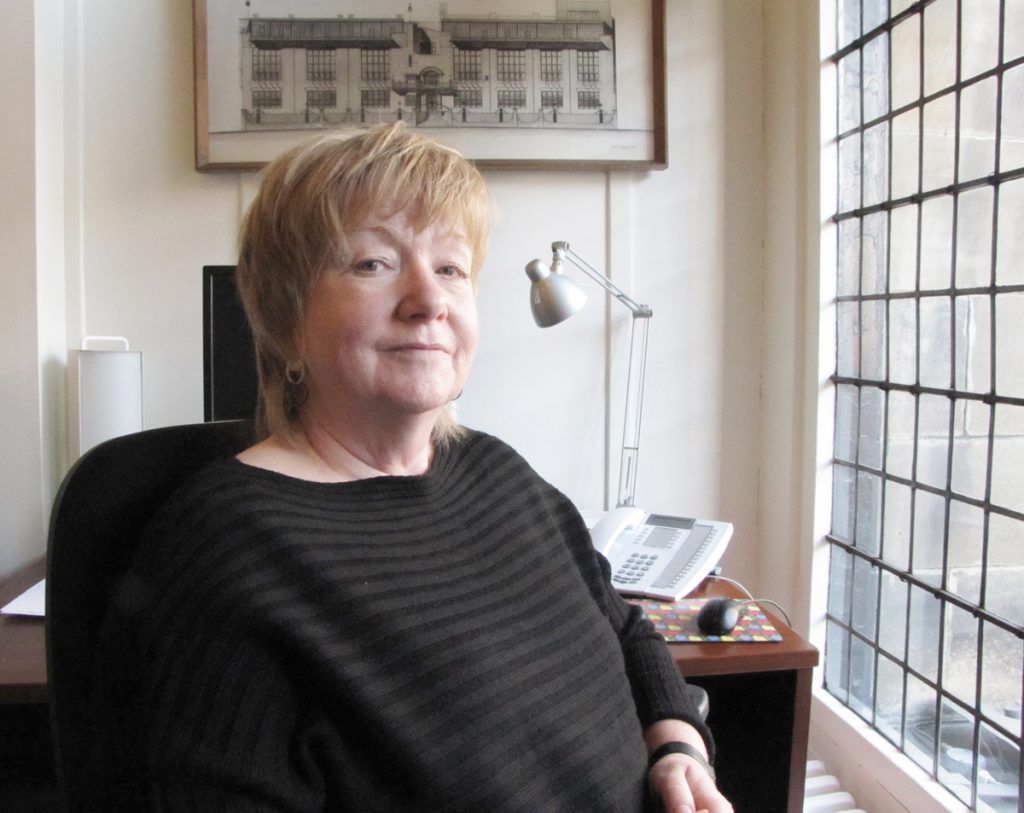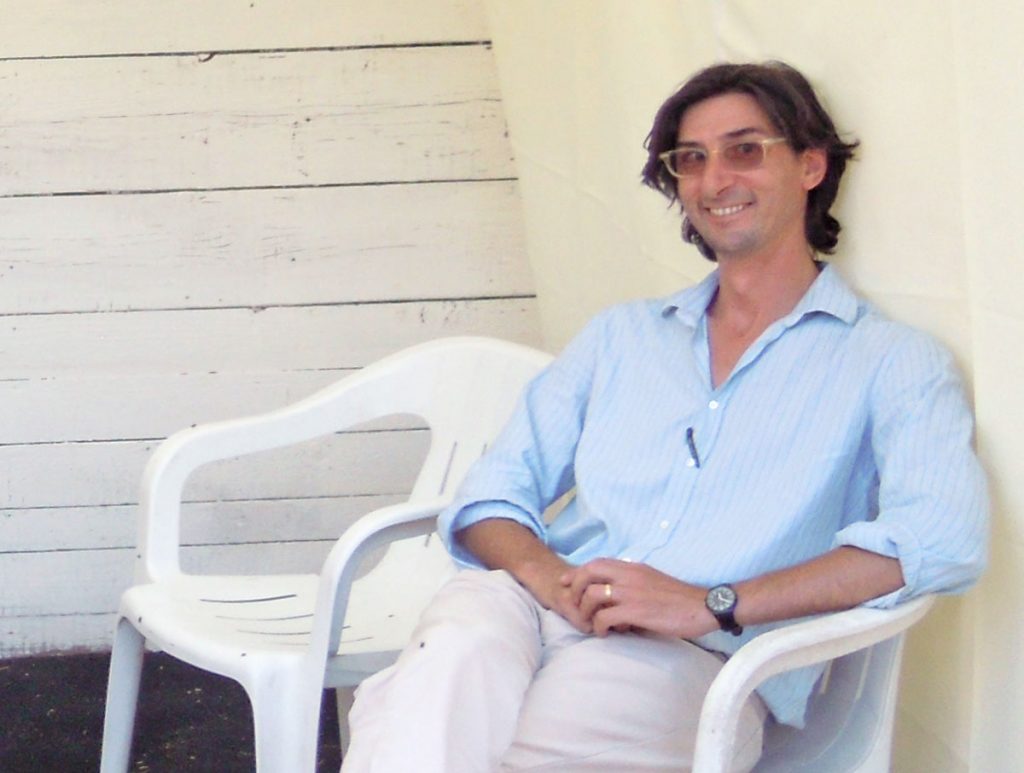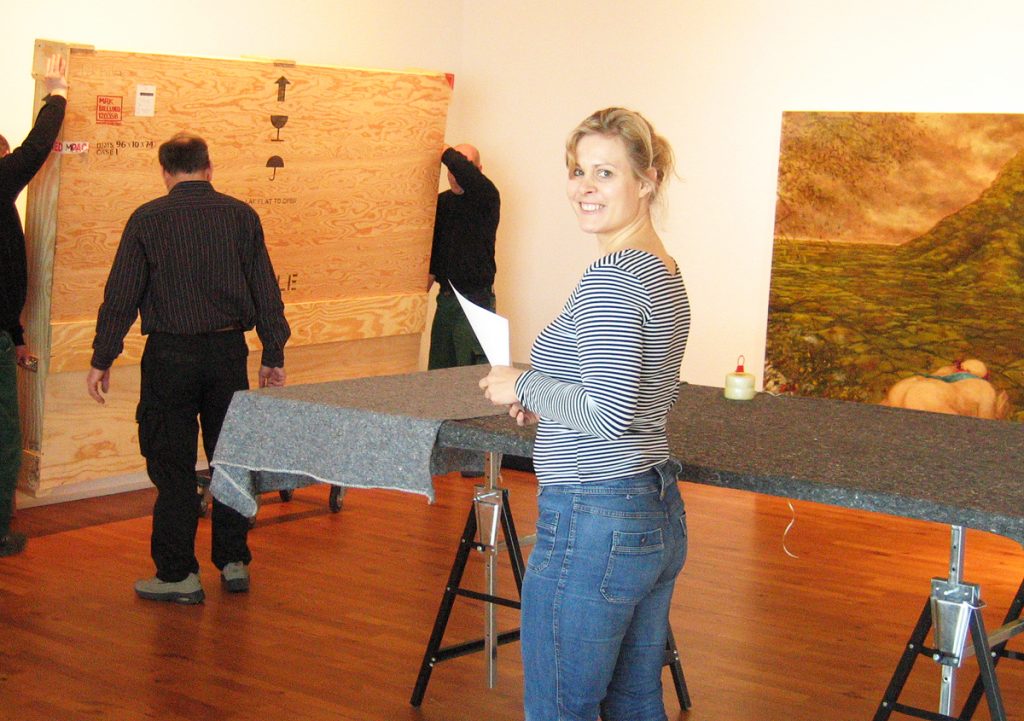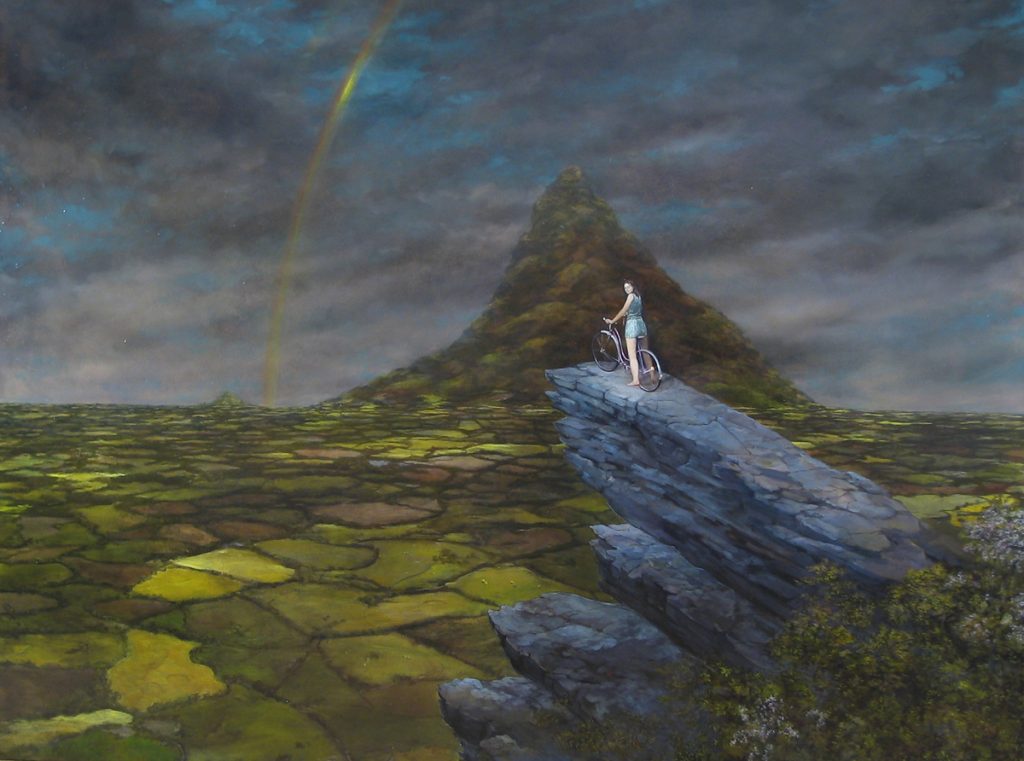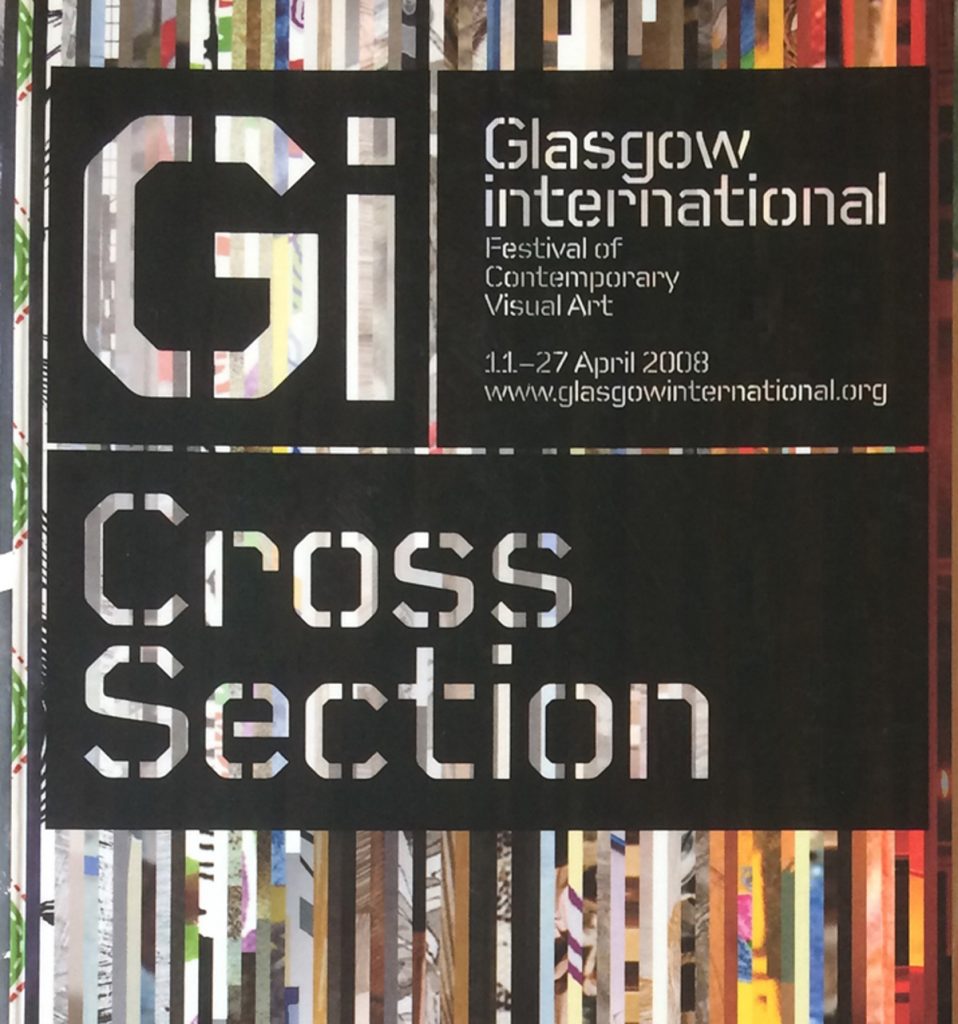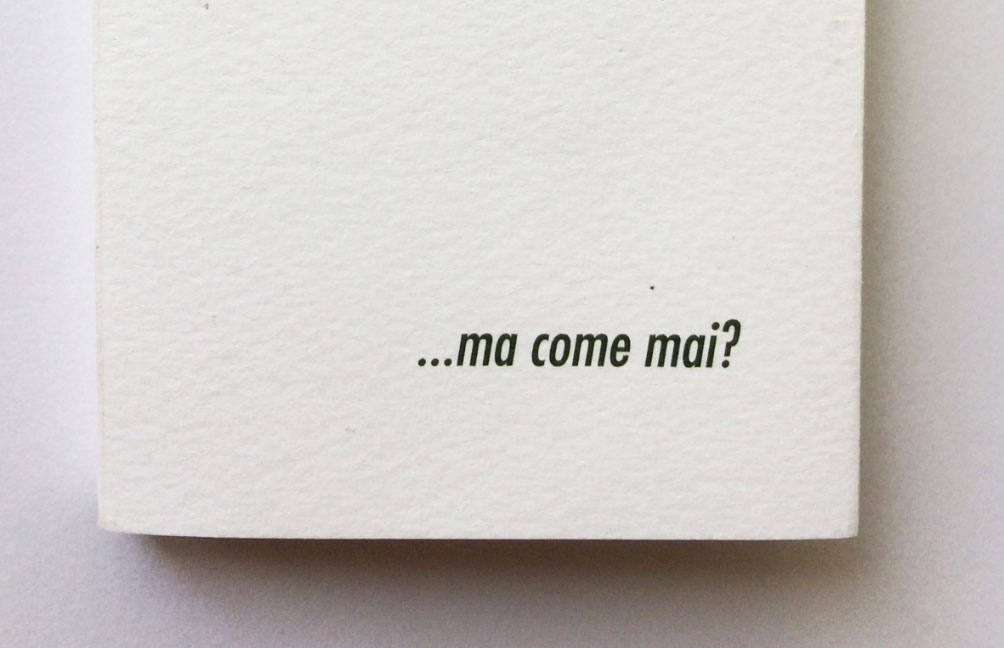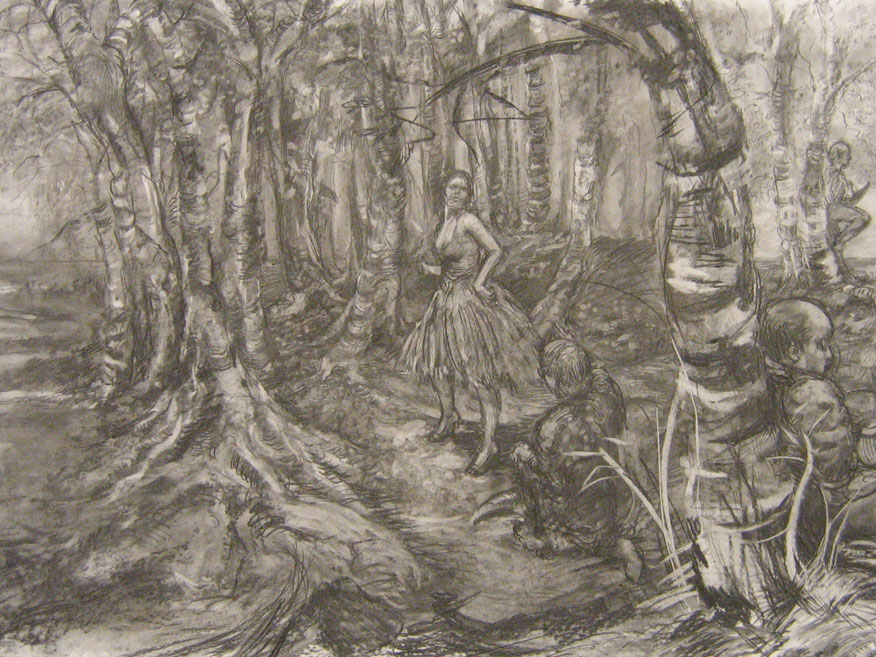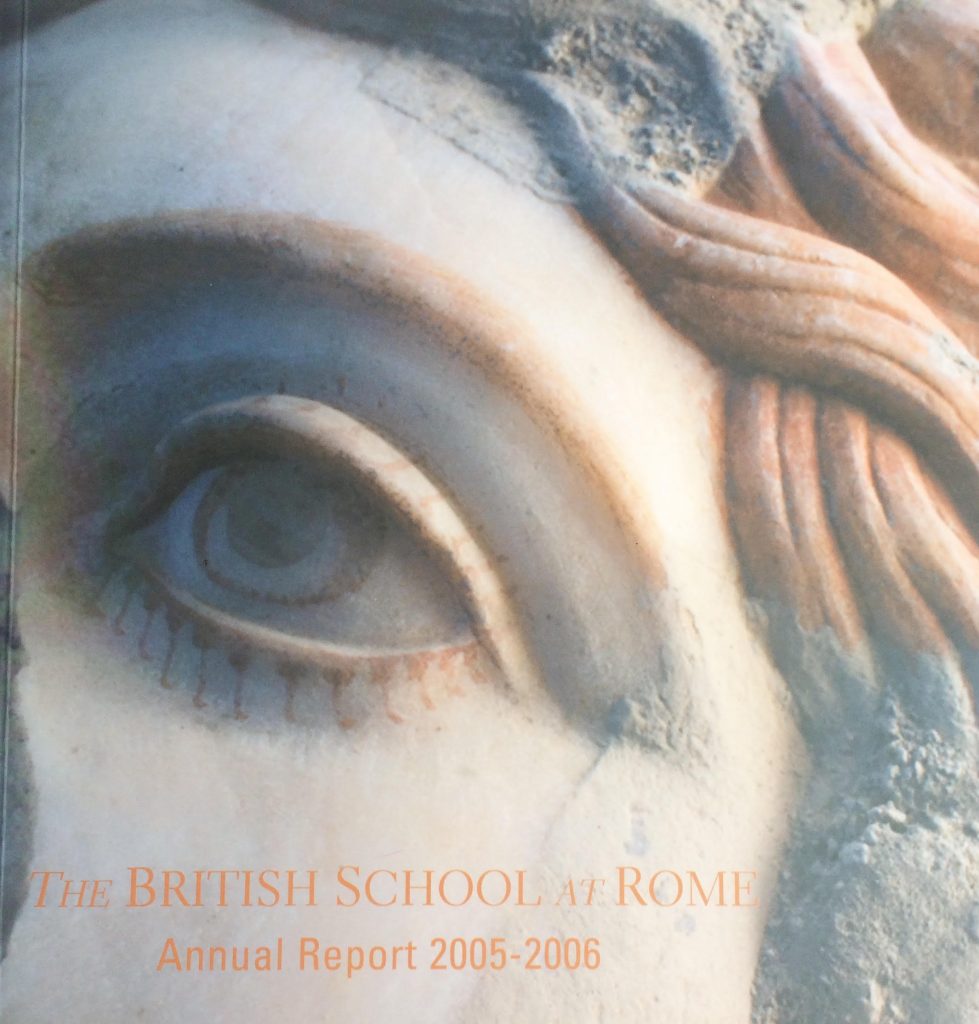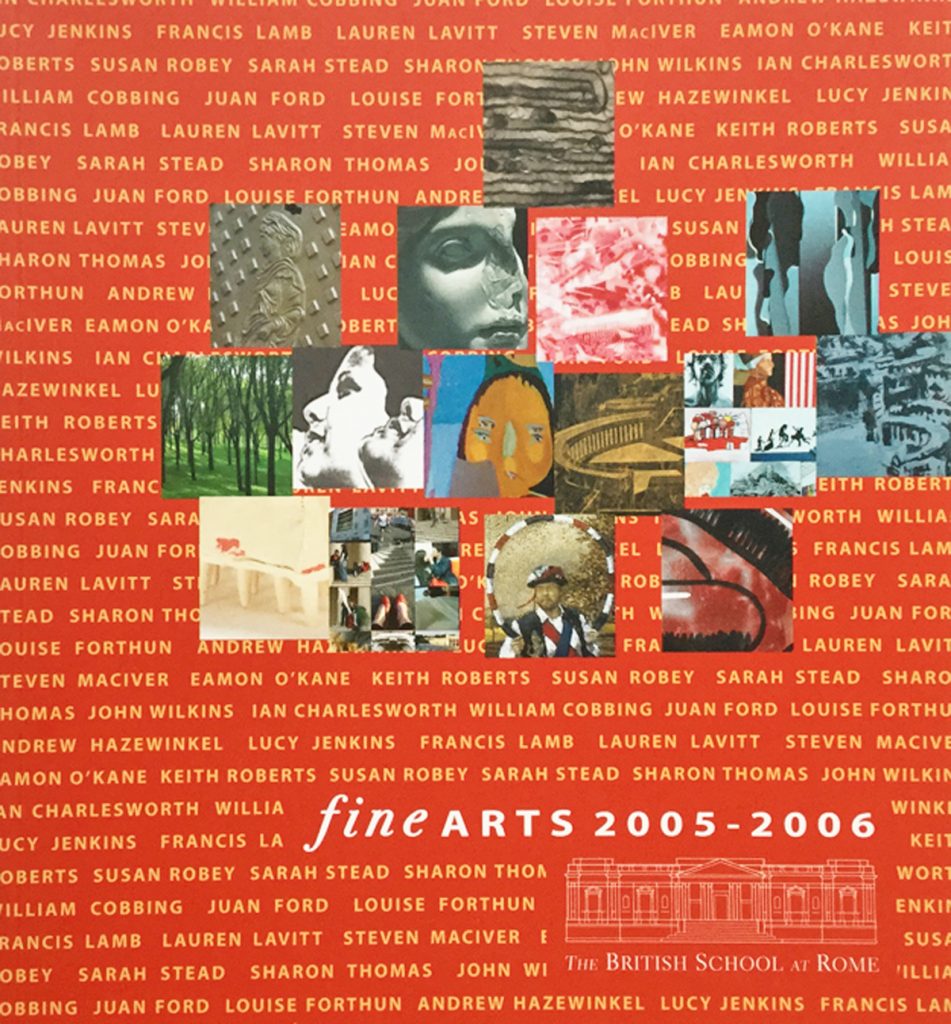Literature
Giovanni Giacoia Garden of Eden Review July 2024
Giovanni Giacoia Review of Garden of Eden, July 2024 Saltmarket, Glasgow (7-28 June 2024) The work comprising the show was the first collaboration for both artists. It included paintings in various paint-based media and surfaces, ranging from oil on canvas to watercolour on paper. With the landscape as their main subject matter the works were…
Read More‘Paint Talk’ by Nicole Dufoe, 2022
“Painting, as such, is nothing more than language.” John Ruskin, “A Definition of Greatness in Art” Should I take a picture? Every day, we produce and consume countless images. With seductive speed and facility, we capture the over-saturated hues of every summer garden, the gradations of every sunset, and every open sky; every shadow from…
Read MoreSharon Thomas, Regina Res Publica, 2004. A response by Dr Gráinne Rice
Sharon Thomas showed me an image of Regina Res Publica (Gina) one of the very first times we met in the early 2000s. She was back in Glasgow for a visit from New York where she was living at the time. I was instantly fascinated by this painting, so I am delighted that she has…
Read MoreRural Rides catalogue 2021
Sharon Thomas and Frances Robertson: Conversations Across Time (March 2021 edition)
Frances Robertson introduces the conversation: At the start of the Herstory Portrait project back in 2010, before any sketches or paintings were produced, Sharon asked me to work alongside her in order to turn her proposed portrait sittings with powerful and influential women into conversations, joining her in our journeys to meet the sitters, taking notes, and adding more…
Read More21 Revolution Publication, 2014
GSA Prospectus, 2013
21 Revolutions Online Publication, 2012
21 Revolutions, Two Decades of Changing Minds at Glasgow Women’s Library. Glasgow Women’s Library is the sole resource of its kind in Scotland. Informed by and
connected with the international feminist art and archive projects that proliferated from the 1970s on, it launched in Garnethill in 1991.
This is Central Station, 2011
Sharon Thomas’ Herstory in context
Historian and curator Francesco Nevola
Sharon Thomas’ project Herstory Portrait comprises a series of seven portraits of women that the painter has met in her capacity as an artist. Her paintings have been conceived of from the outset as a series – they are painted on identically sized panels, in the same egg-tempera media and the sitters are all presented bust-length – these shared qualities serve to formally unite the group of works.
The Portrait of the Artist as a Young Woman
‘She has followed the same course as myself in the adoption of portrait painting, and is earning success merited by fine colouring, by great sincerity, and, particularly, by perfect resemblance. Still young, she can but add to a reputation which in her diffidence and modesty she has scarcely ventured to foresee.’
Read MoreTelling the Herstories: a perspective on Glasgow, gender and the marking of women’s histories.
Adele Patrick, Lifelong Learning and Creative Development Manager and a founder of Glasgow Women’s Library. Glasgow: a man made city?
I arrived in Glasgow as a student at Glasgow School of Art in 1983. My experience of living in the city in the intervening years coincides with its reinvention as a ‘cultural capital’. The politicians and guardians of culture had much to make-over in the post-war period. The city endured seismic impacts in the blows dealt to its economy at this time in the second half of the 20th century and subsequently in the systematic dismantling of the major manufacturing industries in the late 1970s. This constituted an identity crisis for a city whose reputation was mythically ‘Clyde Built’.
Deanna Maganias: Herstory Portrait interview with Frances Robertson 2011
For my contact with artist Deanna Maganias, the usual format of a physical sitting is re-formatted to spoken word, with Deanna currently based in Italy: travelling back and forth from Greece due to exhibition commitments. Therefore for these conversations Deanna and myself have opportunity to talk independently and juggle the joys of time zone confusion.
Read MoreElish Angiolini: Herstory Portrait interview with Frances Robertson 2011
Elish Angiolini is the first woman Lord Advocate of Scotland, the chief legal officer of the Scottish Government and of the Crown in Scotland. She was appointed in October 2006 and her post will run until May this year. The portrait sittings have all taken place in her rooms in the Crown Office in Edinburgh, an imposing nineteenth century building in Chambers Street, constructed first as the Watt Institute and then expanded to form a part of Heriot-Watt University, before it was taken over and refurbished for its current purpose. Before entering the Crown Office, then, one is greeted with busts of industrial heroes on the façade, and the main entrance is topped not by a figure of blind Justice, but by a busy hammering smith at an anvil. The interior decorations have a more legalistic theme however, with one area containing a display of images of many of the past Lord Advocates. Although some of these images have been taken from what appear to be official portraits, rendered in print reproductions such as copper engravings of mezzotints, several images have come from much more informal sources such as topical caricatures or comical news stories of their periods.
Read MoreRuth Wishart: Herstory Portrait interview with Frances Robertson 2010
Ruth Wishart is a journalist, broadcaster and commentator with a prominent place in Scottish public and cultural life. She has a great talent for facilitating debate and action in the field of ethics, the arts and in social policy and has served as a trustee or board member for many arts organizations. Ruth went almost straight into journalism after leaving school, and has learned her trade through the constant discipline of writing for deadlines ever since.
Read MoreJohann Lamont: Herstory Portrait interview with Frances Robertson 2010
WE meet Johann on a very balmy August morning at The Wedge, which is a community resource centre situated in Greater Pollock, and our interview convenes in an large open plan meeting room that over looks a very busy traffic intersection. This building is Johann’s contact base within her Glasgow Pollok Constituency, when she is not working from her office within the Scottish Parliament in Edinburgh. Johann Lamont has been the MSP (member of the Scottish Parliament) for her constituency since 1999, with currently responsibilities as deputy leader for the Labour party in the Parliament as well as being spokesperson on Communities, Equal Opportunities and Housing.
Read MoreJean McFadden: Herstory Portrait interview with Frances Robertson 2010
Jean McFadden has been involved in local politics and in teaching all her life. She was the first female leader of Glasgow City Council (from 1979), and now in her seventies, Jean is still a working councillor for Glasgow ward: Garscadden/Scotstounhill.
Read MoreSeona Reid: Herstory Portrait interview with Frances Robertson 2011
We meet in Seona’s office within the Mackintosh Building at the Glasgow School of Art. The Director’s office adjoins the first floor Mackintosh Museum, and sits above the foyer entrance, overlooking the sweep of steps on to Renfrew Street. The office/ meeting space is spaciously set out and furnished with Mackintosh pieces such as chairs/ table and writing desk. There is a small private cloakroom/ pantry and a studio space above, reached by a narrow spiral staircase, that gives the whole area the hushed secluded character of a retreat or private suite; however, that feeling is so strongly in accord with our perception of the Mackintosh’s architectural vision that it holds the host and visitor suspended in anonymity. By contrast, the choice of paintings by alumni of the School on the walls indicate more an individual mixture of personal choices.
Read MoreFrancesco Nevola: In conversation with Sharon Thomas: painter, thinker and jester, 2009
In conversation with Sharon Thomas: painter, thinker and jester, Francesco Nevola, Apotropaic, 2009
Read MoreGI Cross Section, 2008
Preface to Apotropaic by Gerd Rathje 2008
Superstition , folk tales and myths and the influences such narrations have on our conception of reality are themain themes in the exhibition ‘Apotropaic’ opening this spring at the Museum of Religious Art, Denmark. In her work the British artist Sharon Thomas shows the storiesandmyths that we are part of and that are moulding our philosophy of life and our identity.Sharon Thomas’ charcoal drawings, paintings, and shadow installations unfold a world inhabited by characters that partly belong to the existing world in the English parishes such as Northwich, the town where Sharon was born and grew up.
Read MoreNevola, F. (2008). Sharon Thomas: Making of a Painter, Apotropaic, Museet fur Religios Kunst
Over the course of the next pages we will follow the career of one young painter, Sharon Thomas, whose work is committed to the exploration of still un-charted territories such as class, gender, identity and faith in contemporary society: a quest which, on occasion, is not without humour. In reconstructing the enigmatic and winding path this career has taken, that over the course of a decade, has led from Cheshire in England to Glasgow in Scotland and onto New York City and Rome, before returning to Glasgow where she now lives, we will in this essay, encounter Thomas’ own energetic accounts of the events that have influenced her work and, explore the main issues that animate it.
Read More